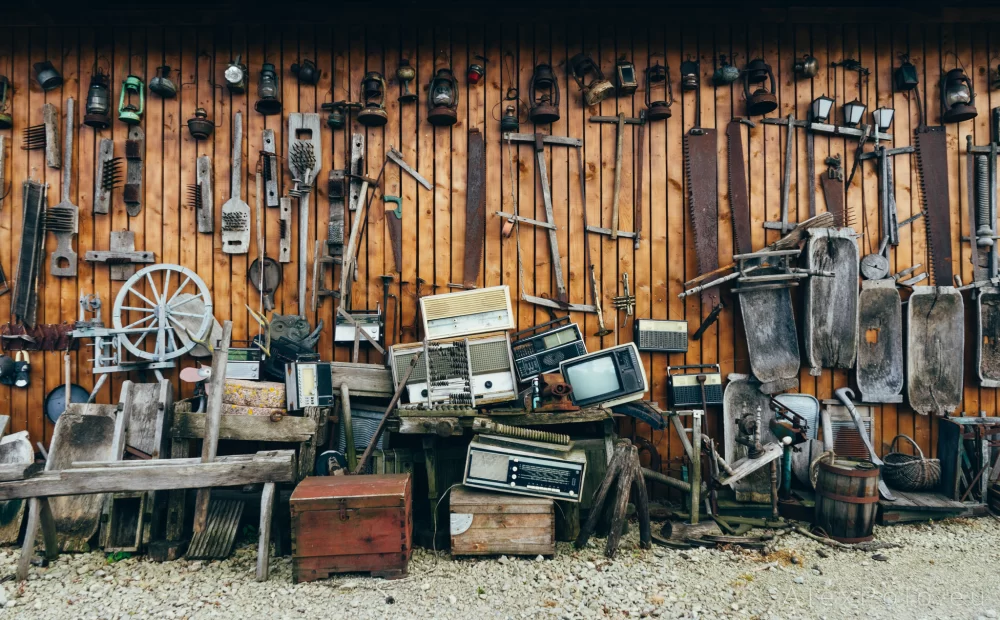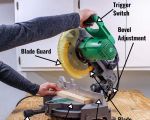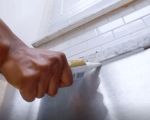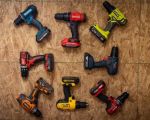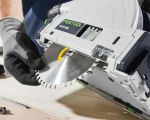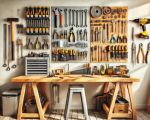- 1- Introduction to Precision Tools for Home Repairs
- 2- Why Precision Tools Matter in Home Repairs
- 3- Different Types of Precision Tools for Home Repairs
- 4- Top Precision Tools for Home Repairs
- 5- How to Choose the Right Precision Tools for Your Projects
- 6- Maintenance Tips for Precision Tools
- 7- Conclusion: Making Your Home Repairs Easier with Precision Tools
1- Introduction to Precision Tools for Home Repairs
When tackling home repairs, having the right tools is essential for achieving a professional-level finish. Precision tools, in particular, are invaluable for tasks that require accuracy and attention to detail. Whether you’re a seasoned DIYer or just getting started, precision tools can help make your home improvement projects easier, faster, and more effective. In this guide, we’ll explore the importance of precision tools for home repairs, discuss the different types available, and provide recommendations for the best tools on the market to ensure your projects are a success.
2- Why Precision Tools Matter in Home Repairs
Precision tools are designed to offer more control and accuracy than standard tools. This is crucial when performing tasks like measuring, cutting, or installing fixtures where even small errors can have significant consequences. By using precision tools, you can ensure that your repairs and installations are not only functional but also aesthetically pleasing. These tools help reduce the chances of mistakes, save time on adjustments, and provide a sense of accomplishment once the job is complete. Whether you're fixing plumbing, carpentry, or electrical systems, precision tools will allow you to tackle each task with confidence and ease.
3- Different Types of Precision Tools for Home Repairs
Precision tools come in various forms, each designed for specific tasks. Understanding the different types of precision tools available can help you choose the right ones for your home repair projects:
- Measuring Tools: Accurate measurements are essential for most home repairs. Tools like digital calipers, laser levels, and tape measures ensure that your measurements are spot-on, making installation and assembly more straightforward.
- Cutting Tools: Precision cutting tools like miter saws, jigsaws, and coping saws are necessary for cutting materials such as wood, metal, or plastic with great accuracy. A sharp and well-calibrated cutting tool minimizes errors and ensures smooth edges.
- Drill Bits: For precise drilling, high-quality drill bits are a must. Different bits are designed for various materials and tasks, from wood to metal to masonry. Select the right drill bit to ensure clean holes with minimal damage to surrounding surfaces.
- Fastening Tools: Tightening and securing fasteners with precision is critical for home repairs. Tools like torque wrenches and screwdrivers with adjustable settings ensure that bolts and screws are fastened securely without causing damage.
- Marking Tools: Marking tools like chalk lines, carpenter’s pencils, and scribe tools are essential for accurately transferring measurements to your work surface. These tools help guide your cuts and alignments for better results.
4- Top Precision Tools for Home Repairs
Now that we’ve covered the types of precision tools you’ll need, let’s dive into some of the best tools available for home repairs:
- DeWalt DW088K Self-Leveling Cross Line Laser: Perfect for leveling tasks and precise alignment, this laser tool ensures your measurements are accurate for flooring, wall installation, and more.
- Makita XSH03Z 18V Circular Saw: Known for its precision cuts and power, this cordless circular saw is ideal for home repairs that require clean, straight cuts in wood and other materials.
- Irwin Tools 180-Degree Digital Torque Wrench: For any home repair requiring tightened bolts, this precision torque wrench ensures that fasteners are applied with the correct force to avoid over-tightening or under-tightening.
- Bosch GLM 50 C Bluetooth Laser Measure: This compact and easy-to-use laser measure helps with accurate distance and area calculations, making it perfect for carpentry, flooring, and painting tasks.
- Stanley 33-725 25-Foot PowerLock Tape Measure: This durable, easy-to-read tape measure is a staple in every DIY toolkit, offering precision for any measuring task.
5- How to Choose the Right Precision Tools for Your Projects
Choosing the right precision tools for home repairs requires an understanding of your specific needs and the tasks at hand. Here are a few tips to help you make the best selection:
- Assess Your Needs: Determine the types of repairs you’ll be doing most often. Are you focused on carpentry, plumbing, electrical work, or general DIY? Your tool selection should be tailored to the tasks you perform most frequently.
- Consider Tool Quality: Invest in high-quality tools that will last longer and provide more accurate results. While precision tools can be expensive, they are an investment in the quality and efficiency of your repairs.
- Look for User-Friendly Features: Choose tools that are easy to handle, especially if you’re new to DIY projects. Features like ergonomic handles, clear displays, and adjustable settings can make using the tools much easier.
- Check Reviews and Recommendations: Research product reviews and ask for recommendations from experts or other DIYers. Learning from others’ experiences will help you make informed decisions when selecting tools.
6- Maintenance Tips for Precision Tools
To ensure that your precision tools remain accurate and functional for years to come, proper maintenance is key. Here are some tips to keep your tools in top condition:
- Keep Tools Clean: Regularly clean your tools to remove dust, debris, and oils that may affect their performance. Use a soft cloth or brush to gently clean surfaces and joints.
- Lubricate Moving Parts: Lubricate any moving parts on tools such as saws and drills to prevent rust and ensure smooth operation.
- Calibrate Tools Regularly: Over time, precision tools can lose their accuracy. Regularly calibrate your tools, such as laser measures and torque wrenches, to ensure they remain precise.
- Store Properly: Store your tools in a dry, safe place to prevent damage. Use toolboxes or drawers to keep them organized and prevent them from being scratched or worn down.
7- Conclusion: Making Your Home Repairs Easier with Precision Tools
Precision tools are essential for achieving the best results in your home repairs. They provide accuracy, efficiency, and confidence in completing tasks with ease. Whether you are measuring, cutting, or drilling, using the right precision tools makes the process smoother and more enjoyable. As you build or upgrade your toolkit, consider the types of repairs you’ll be doing and invest in high-quality tools that offer both durability and precision. For expert recommendations on the best tools for your home repair needs, visit ToolNest for a curated selection of top-rated precision tools.

